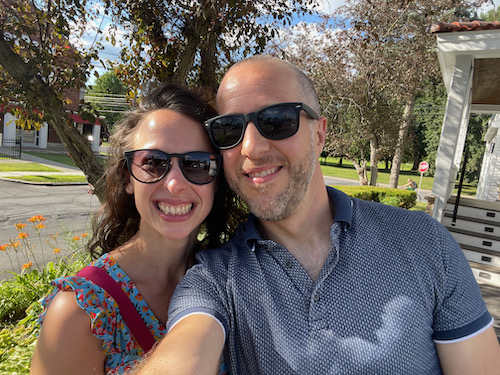Voiceless while having a voice
It wasn’t supposed to be like this. No one was supposed to hear me talk.
Growing up, I didn’t have a voice. At least, I didn’t feel like I had a voice. Being the younger brother to a much older sister, it was hard to get a word in edgewise. Plus, my parents were often fighting, stressed over finances and survival. The environment was chaotic, and to be heard was a rare occurrence.
Hearing myself talk
On top of this, I was born with a foghorn of a mouth. Interestingly, most of my cousins had speech impediments. I, on the other hand, had this booming sound-box, and my boom-box of a voice made me stick out. And I loved to talk. I loved to sing and shout. My family always told me that I was too loud, too much. They used to tell me that I loved to hear myself talk. And that’s how it felt: without my words being received, the feeling was one of talking to myself. Perhaps I was saying it all wrong? Perhaps my voice sucked? Maybe I should just stop.
So that’s what I did. I decided to stop talking. Or at least, I decided to stop talking as myself.
Your voice carries
Sitting at the back of an assembly in junior high, I told a joke. My friends laughed. I beamed. I felt electric, elated. But my voice had deepened earlier than the rest of my classmates and my words for once carried all the way to the front of the hall. My teacher glared at me. When the bell rang, she pulled me aside and said, “You have to watch what you say, Sam. Your voice carries more than most. Next time, you’ll be in big trouble.” I froze. I was heard, but it wasn’t a good thing. My words backfired. I hated my voice. From that point forward, I became self-conscious when I talked.
Having a voice vs. the voices in your head
Most of my young life was a matter of theatre. I went to college for acting. I studied method acting in Chicago. And what I loved most about the theatre was that it gave me an opportunity to be heard without being myself. When acting, someone else writes the lines, someone else writes the story. Theatre was an opportunity to have a voice and not be myself. It seemed like the perfect solution…
But I quickly learned: to survive as an actor, you have to bring the “special sauce.” In fact, to be a great actor, you have to START WITH YOURSELF. Just as the best fiction is based on the truth, the best acting starts with something personal. While I’d been trying to be someone else, I discovered that I had to change course and learn to become myself.
Stop acting and start talking
I was 25 and auditioning for a beer commercial. The recording studio was beautiful, ornate, but one thing was clear: the casting director didn’t like my stuff. For reasons unknown, he gave me another shot, but first he gave me a heap of conflicting direction. “I want you to use more energy,” he said and added, “But not over the top. Be loud! But casual. Have Fun! But don’t push too much…” My head was spinning. I was in twelve places at once. Then the casting director said, “Okay, let’s do it again.” That’s when it hit me. Stop acting, Sam, and start talking as yourself. I pictured my best friend in my mind. And then I started to talk.
The art of having a voice and not giving a f*ck
For once, I wasn’t acting. Instead, I was simply talking as myself to someone else. I booked the job, but I kept wondering, “Why wasn’t I taught this sooner? Why have I never learned to speak as myself?” There’s a path to having a voice without becoming someone else.
To be heard, start with yourself and send your voice out
Like good storytelling, being heard requires a few things. Mostly, however, being heard depends on two factors: you and your audience. To be heard, you must contend with both. Without knowing your audience, your words will prevent you from being heard. Without knowing yourself, your words will be hollow sounds.
What is speaking well?
Speaking well is cutting through the noise. Speaking well is a bridge between you and your listener. But you can’t begin to build a bridge without a foundation in yourself.
Put another way, speaking well begins by changing the way you think about your voice. It begins by starting with yourself.
You are so much more than the way you sound.

